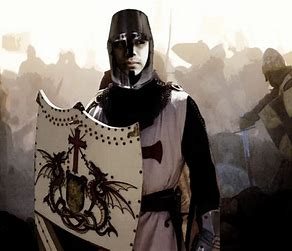
Bertrand de Got was born in Aquitaine, now in France, but then in the Holy Roman Empire. At first, being from a wealthy family, he entertained himself with studying the arts in Toulouse and enjoying wine making.
Later he studied canon and civil law at Orleans and Bologna. He was canon and sacristan of the Cathedral of St. Andre in Bordeaux. Later, he was vicar general for his older brother, Berard de Got, the Archbishop of Lyons. Later he was the chaplain to Pope Boniface VIII.
In 1297, Bertrand was appointed to (or, according to some, bought) the archbishopric of Bordeaux and, as such, was a subject of England. But, meanwhile, he was a friend to the king of France, Philip the Fair.
In 1304. Pope Benedict XI died after only eight months on the throne. He had died in Perugia, so the conclave was there. The antagonism between the Italian and French cardinals was extreme and, with equal numbers of each, after eleven months, the voting was at a standstill. It is said that King Philip pushed for his friend Bertrand to be elected. And so it was. Although Bertrand was elected in June, he was not crowned until 14 November, because he insisted that he be crowned in Lyon, in France. Philip attended.
Philip was not a good man. He was a spendthrift and, as a young man, he had used much of France’s coffers on a war with England. He had tried to tax clerics to get more money. Pope Boniface wrote a bull preventing any king from taxing clerics without his permission. Then Boniface wrote a second bull claiming supremacy over all rulers. Philip’s reactions eventually led to Boniface’s kidnapping, abuse and death. But Philip did not get those bulls rescinded. Clement, his friend, became his puppet.
First, Clement created nine new cardinals, most of whom were French. Then he negated many aspects of Boniface’s bulls, saying that Philip was above that control. Philip wanted Boniface remembered as a heretic, a blasphemer and an immoral priest. Clement was not willing to admit that. Philip’s lawyers demanded a trial.
Clement was sick and spent 1306 in Bordeaux. It turns out that this illness would haunt him through his papacy. He had cancer.
Philip spent that time looking for money. The Templars had returned to Europe after losing Jerusalem. They had had two hundred years of international banking experience and were rich. On Friday the 13th of October, 1307, Philip had over 300 Templars arrested on charges of fraud, heresy, sodomy, immorality and abuse. Over the next few years, most of the enormous wealth of the Templars went to the Hospitalers and Philip. Many of the 300 were killed.
By February 1309, Clement had moved to Avignon, a place better situated for church administration, as justified by the French on the grounds of security. Rome was in a bad state. St. John Lateran, the home of the popes had burned down and the Roman militia were too dangerous. The Papal States were entrusted to a team of three cardinals while Rome remained a battleground.
There in Avignon, for two years the post-mortem trial of Pope Boniface took place. In the end, Philip abandoned the case and Clement absolved almost all in the abduction of the late pope.
In 1311, Clement called for a Council at Vienne. The Council refused to convict the Templars of heresy. But the order was abolished since it had outlived its usefulness. To this day, it is hard to tell if the order was guilty or innocent. Also at the Council, Clement called for another Crusade, the second he called for, the first being the failed Crusade of the Poor. Philip vowed to take up his cross. Neither saw that Crusade.
Meanwhile, in 1310, the man elected to be Holy Roman Emperor, Henry of Tutzelburg, entered Italy and nominated the Visconti family as vicars of Milan. He was crowned by legates of his supporter, Clement V. When Henry came into conflict with Robert of Naples shortly after, Clement changed sides and supported Henry’s enemy. Henry’s death in 1313 ended Clement’s split loyalty.
Both Philip and Clement died naturally in 1314. The church where Clement laid in state went up in flames and most of Clement’s body could not be rescued.
Pope Clement V was an adroit pontiff, but timid and chronically ill. He was easily led by King Philip. The 70-year Avignon residence began with him.

Recent Comments